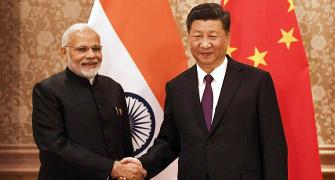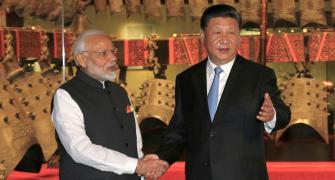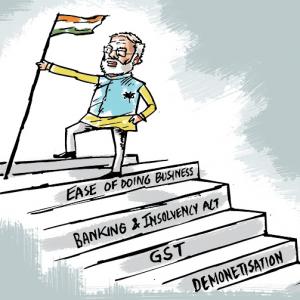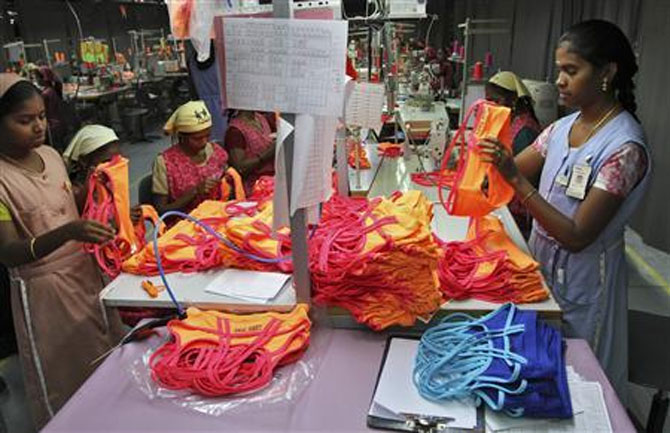On the occasion of Chinese president Xi Jinping’s two-day visit, Indian exporters are looking for a big boost in export of agricultural commodities, especially the ones that have been impacted by the ongoing trade war between the United States and China.
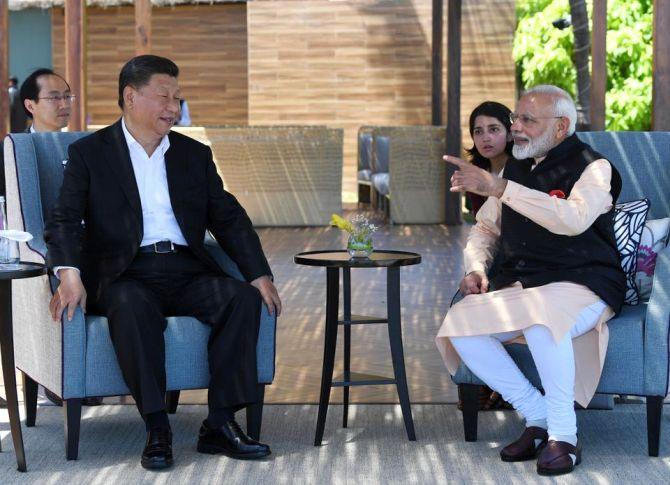
India is looking for an easier access to the Chinese market in order to arrest the falling exports of agri commodities. After hitting a record $43.2 billion in 2013-14, India’s export of agricultural commodities started declining gradually.
This was because of lack of quality innovations and competitiveness following sustained increase in the minimum support price (MSP).
Falling prices, changing preferences and domestic policies have also contributed to fall in some big contributing commodities such as buffalo meat, guar gum and oil meal, among others.
The silver lining is that seafood has seen a very good growth in the last few years.
Both countries have discussed the issue of expanding bilateral trade in the meeting between Prime minister Narendra Modi and Chinese president Xi Jinping’s.
The fall started after FY14 and has continued till this fiscal. Between April and August 2019 alone, India’s overall export of agricultural commodities reported a fall with products registered with the government-owned Agricultural & Processed Food Products Export Development Authority (Apeda) seeing a decline of 16 per cent in dollar value terms.
This follows a staggering 22 per cent fall in cereal exports.
Apeda oversees half of India’s overall exports of agricultural commodities. Total agri export fall is not that sharp due to higher seafood exports.
On the occasion of Chinese president Xi Jinping’s two-day visit, Indian exporters are looking for a big boost in export of agricultural commodities, especially the ones that have been impacted by the ongoing trade war between the United States and China.
As of now, India has restricted access to a limited number of commodities.
While China has already allowed market access to many of India’s agricultural commodities, including rice and sugar, the country is looking at further expansion in its exports, especially for marine and other products.
India’s Dhampur Sugar has signed a memorandum of understanding (MoU) with Chinese importers for shipment (export) of 50,000 tonnes of sugar to China. In commodities like Buffalo meat, despite formal entry to it, actual exports are routed through Vietnam.
While China has already started importing rice in a limited quantity from India, there is a further potential of around $500 million worth of rice exports to the neighbouring country, according to experts.
India’s marine exports have witnessed an impressive growth though. In the last two years, India’s marine exports have jumped to around $485 million in the first half of the current financial year from the level of around $141 million in 2017-18.
“Now, we are talking about $1 billion worth of marine exports to China only. There is a huge demand of India’s agricultural products in China. But, market access has been an issue which China should resolve. In the recent past, China has shown some interest to expand market access to India. This raised hopes for an increase in the country’s exports of agricultural commodities to China,” said Ajay Sahai, director general, Federation of Indian Export Organisation (FIEO).
“India’s export of agricultural commodities are declining for quite some time. Issues like access output, buffer stock and price decline are also impacting India’s agricultural exports. With the land being limited and productivity going down, prices of agricultural commodities will rise only in the long run. Interestingly, India’s agricultural exports have a lot to do with the purchasing power of consumers in the importing countries. With most of global economies facing problems, India’s overall agricultural exports may have some impact for the short term. But we are very bullish in the long run,” said Ajay Sahai.
Meanwhile, independent experts have raised a red flag on India’s competitiveness in agricultural exports compared to the world market.
“Indian commodities will be able to find space in the international market only if they are quality and price competitive. By increasing minimum support price (MSP) without considering the ground reality of the international market, Indian commodities have become over-priced,” said Vijay Sardana, an agricultural economist.
Another reason for the decline in exports is lack of innovation. Since consumers in importing countries get substitute suppliers from other countries at a price much cheaper than India, they prefer to import from other regions, said Sardana.
Between the crop years 2013-14 and 2019-20, the government has raised MSP of all agricultural commodities by 50-60 per cent.
Data compiled by the Food and Agricultural Organization (FAO) has shown a sustained decline in the prices of global agricultural commodities due to bumper production.



